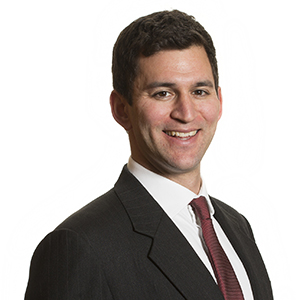
The Bus Services Act 2017 (the Act), which came into force on 27 April 2017, introduced new powers for Mayoral Combined Authorities (MCAs) to create a franchise system for their local bus networks in an attempt to regulate and modernise the UK bus network. These powers did not become available to MCAs until the publication of the Department for Transport's (DfT) guidance note on bus franchise creation in November 2017 (as updated in March 2018).[1]
We discuss below the key elements of the DfT's guidance note, as well as exploring the extent to which Local Authorities outside of London have sought to exploit the franchise model.
What is the new system and why is it needed?
In short, the new system is very similar to the one currently in place in London, where Transport for London governs how buses are run. The MCAs are now able to determine the details of the services to be provided in their catchment areas (including where and when they run, and the standards of services to be upheld). This is in contrast to the current system where, subject to obtaining the applicable authority's consent, any private company can operate in an area.
There was a range of views on whether the legislation was required. However, the theory is to provide a new framework to allow bus operators and local authorities to work collaboratively to improve bus services and realise untapped growth potentials in regional and rural areas. The franchise model would also prevent other services from operating in a certain area once a franchise is agreed, with the aim of giving the MCAs greater control over how their bus services are provided.
Can anyone other than MCAs use these powers?
Only MCAs qualify automatically for the right to implement a bus franchising service under the Act. The UK currently has 6 MCAs (Cambridgeshire and Peterborough, Greater Manchester, Liverpool City Region, Tees Valley, West of England and West Midlands).
However, other local authorities who do not meet the definition of a MCA (such as county councils or those without an elected mayor e.g. North of Tyne Authority or West Yorkshire Combined Authority) can still access these new powers if they:
- set out plans for improving bus services, giving a clear explanation as to how the franchise model is the best (or only) way that the authority's specific objectives can be reached
- demonstrate that they have a suite of powers in place to make franchising a success, such as holding legal control over local roads and public transport
- prove that local governance arrangements are effective in terms of transparency to local people, including specifying a named individual (e.g. Council leader) who will be ultimately responsible for any franchising arrangements
- explain how the geography of the area is able to support a franchise model, and how the proposed franchise area would impact on neighbouring local authorities (regardless of whether they also have franchised bus services or not); and
- show that it has the capability and resources to deliver franchising, including a clear explanation of the long-term level of funding that the authority would commit to the development, implementation and management of (and transition to) a franchising scheme.
Only if all of the above criteria are met will the DfT approve an authority's request to access these powers.
How will bus franchises be implemented?
When a MCA (or other authority which has been afforded the applicable powers) wishes to implement a franchising scheme, it must complete a detailed assessment and submit this to the DfT for approval. This is a detailed process and includes similar elements to the test described above. Below are all of the elements to this second assessment:
- Developing a compelling case for change – the authority should:
- describe their overall aims and how bus services play into these
- provide current and predicted information about performance of local services
- explain why the geography of the area is appropriate for a franchise model; and
- detail what issues passengers are currently facing.
- Setting objectives – the authority needs to set clear objectives for its proposed bus franchise which are "specific, measureable, achievable, realistic and time-bound."[2] There should also be specific objectives relating to the affordability of the scheme and how it represents value for money
- Options generation and refinement – the authority should engage with bus operators in the area to explore whether a franchise agreement is really the best solution, or if there is a realistic proposition to implement other ideas instead (such as partnerships with current operators or a new ticketing method)
- Detailed assessment of options – all shortlisted options should then be assessed based on the following criteria:
- strategic case (how will each option achieve policy objectives?)
- economic case (what value for money will each option provide?)
- financial case (how much will each option cost to create and maintain?)
- commercial case (how will each option be procured and contracted?); and
- management case (how will each option be delivered and managed?).
- Auditor's assurance report – once the business case has been compiled, an independent auditor with professional accountancy qualifications must be hired to form an independent opinion that the information gathered by the authority meets the required standard for review by the DfT
- Consultation – finally, the authority must consult more widely on its proposals to ensure that local passengers, businesses and transport providers are able to comment on each of the options available.
Only when all of the above steps have been successfully completed can the authority submit its case to the DfT for a bus franchise to be implemented in their area. The DfT will then have the final say in deciding if a region is to be allowed to (1) exercise the powers under the Act and (2) implement a bus franchise system.
Are there alternatives to bus franchises?
The process of creating a business case to propose a new bus franchise in any given area is one that would take a significant amount of time and money for an authority to invest in. Despite this, there have been recent examples of major UK cities making public steps towards the franchising model.
One of the most prominent has been Manchester, where former Cabinet Minister and current Mayor Andy Burnham is a vocal supporter of change to the current local bus network which he describes as "confusing [and] overpriced."[3] The city will be holding a public consultation on the issue later in 2018, and other areas such as Leeds[4] and Middlesbrough [5] appear to be following suit. Leaders in these areas are pushing for an updated system which allows for a more consistent bus service offering in their area, and franchising would be one way in which they can achieve this.
A suggested alternative is a "partnership approach" – something which the Act provides further guidance on. In short, there are now two different forms of partnership that can be created between a local authority and a bus service operator:
- an Advanced Quality Partnership Scheme - an attempt to upgrade the provisions of the Transport Act 2000 which introduced the Quality Partnership Scheme (the model which many UK bus services currently follow); and
- an Enhanced Partnership - a more formalised agreement between a local authority and local bus operators which allows the local authority to dictate terms to some degree. However, on key points, these terms must be agreed with the authority by a majority of bus operators who are active in their catchment area.
It is expected that many current Quality Partnership Schemes will transition to an Advanced Quality Partnership Scheme in the future, with the Enhanced Partnership seen as a form of "halfway house" between the current system and a full franchise model.
Conclusion
Whilst many would argue that the current system is not broken, the Act presents franchising as one of several possible options to adapt the structure and delivery of bus services.
However, given the rigorous process outlined above to (1) acquire the powers under the Act and (2) use them to implement a franchise, it is perhaps unsurprising that few cities/authorities have jumped at the opportunity so far. The types of partnership approach outlined above are certainly an alternative that parties on both sides of negotiations have been strongly considering, so it will be interesting to see how many bus services go on to actually adopt the franchise model in practice.
We look forward to seeing how the bus sector moves forward in the aftermath of the Act. If you would like to discuss the Act, or any of its potential implications, please get in touch with a member of our Transport Team who would be happy to assist.
[1] https://www.gov.uk/government/publications/bus-services-act-2017-bus-franchising-creation
[2] Paragraph 1.35, Bus Services Act 2017: Bus Franchising Guidance Note
[3] https://www.theguardian.com/politics/2018/jan/06/buses-beleaguered-councils-back-driving-seat
[4] https://www.yorkshireeveningpost.co.uk/news/shadow-transport-secretary-issues-bus-franchising-call-for-leeds-1-9012002
[5] https://www.gazettelive.co.uk/news/teesside-news/cheaper-tickets-more-routes-you-14191304
This article is for general information only and reflects the position at the date of publication. It does not constitute legal advice.




